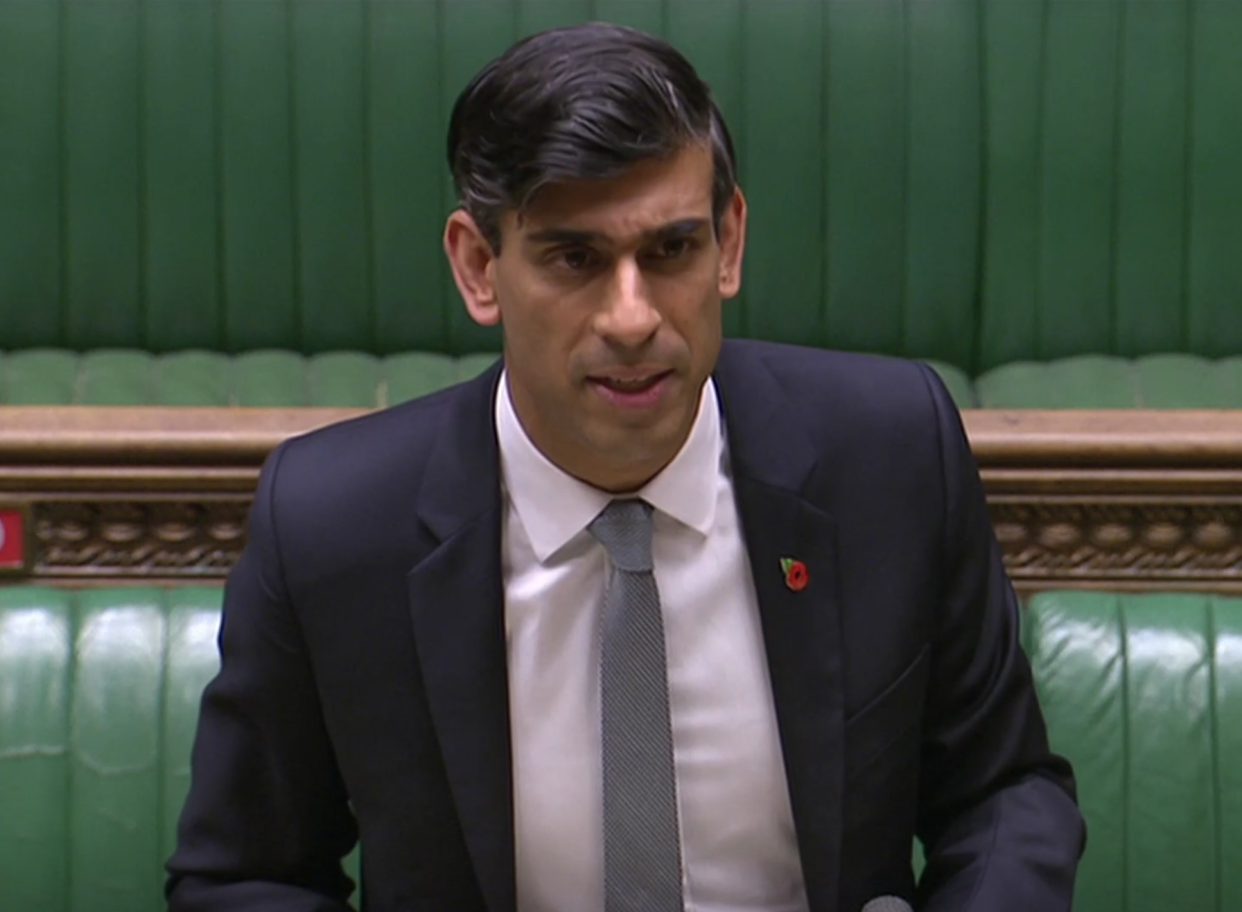Rishi Sunak talked about hard times ahead, yet no word on the sunlit uplands we were promised after Brexit – how strange

The chancellor presents the comprehensive spending review
(Reuters TV)The chancellor stood up, cleared his throat and found that he did not have the moral courage to tell the whole truth.
In the minutes that followed, he would produce a series of terrifying figures, and use them to tell teachers, firemen, police officers and millions of others why their pay would be frozen for years to come. But he didn’t have sufficient depths of personal integrity to be completely honest with them.
Rishi Sunak’s spending review looked far in to the future, in some instances all the way to 2026, but he found himself unable to talk about what’s going to happen in just under five weeks time.
In this stark assessment of where we are, and where we are headed, the word “Brexit” did not feature. The chancellor patiently explained to the nation, with as much personal gravitas as he could muster, the hard times and hard choices that lie ahead, and the economic pain that coronavirus will leave. He talked about “scarring”. About how “the economic damage is likely to be lasting”. He had with him the analysis from the Office for Budget Responsibility.
There was, naturally, no mention of the Bank of England’s analysis, published days ago, that no-deal Brexit will do more long-term harm to the economy than Covid-19. No mention that the transition period ends in under five weeks, and the government of which he is a senior member still, after four and a half years, can’t tell the people what is going to happen in a month’s time.
Here we are, just weeks away from the sunlit uplands, from the great tomorrow, from “independence day”. You would think, given the great unforeseen hardships that lie ahead thanks to Covid-19, that now would be the time to big up the great opportunities that are about to begin. Now would be the time to mention them, wouldn’t it? If they were real, that is. If they hadn’t always been lies, now would be the time to sell them.
And yet, not once. Not a whisper. Not a dicky bird. All these great opportunities, needed now more urgently than ever, at this vital moment, just slipped the chancellor’s mind.
He didn’t mention them, of course, because he probably knows they’re not real. That it’s been a con from the start, and now he’s in on it, complete silence on the subject is the very best he can do.
What he did find time to mention is the coming legislation to cut the aid budget, from 0.7 per cent to 0.5 per cent of GDP. And Foreign Office minister, Baroness Sugg, also found time to resign within seconds of him doing so.
It’s not merely that the sums involved have been made to look trifling by the unimaginable costs of coronavirus. The point about the 0.7 per cent commitment, which was made law by David Cameron, is that it is not a budget that requires cutting. It cuts itself. That was the point of it. The current budget is around £12bn (total borrowing for this year will be £394bn), but that merely reflects current GDP. When hard times come, GDP lowers, and the budget reduces automatically to meet it.
It hardly requires repeating that the peak of a global pandemic is an especially cruel time to cut one’s commitments to the world’s poorest people. And it hardly requires repeating that the watching world is not crying out for yet more evidence of the kind of country Britain has become.
Not merely insular, though that is part of it. But stuck in a politics in which we don’t have the courage to tell ourselves the truth. Ignore the lies and they’ll just go away.
There’s precious little point anguishing over it anymore. It is all as inevitable as it is imminent.
But it is worth noting that in the final few moments before the victors had even received their prize, they decided they could not even bring themselves to talk about it.


